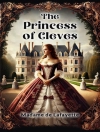Bristling with political plots, secret assignations, daring escapes, duels, surprising alliances and betrayals, Dumas orchestrates two plotlines to come together in a very scene-driven, absolutely over-the-top novel.
The title character isn’t a jester in the way we use the term today; instead Chicot is King Henri III’s advisor with the advantage of being able to speak truth to power. And that power is in jeopardy from within his family and without. Chicot must use all his wiles to keep Henri out of trouble and himself in the position of the real King of France. Against him is the powerful house of de Guise whose head is also the leader of the Catholic League; the King’s brother the Duc d’Angou and the leader of the Huguenot faction, King Henry of Navarre.
The other principal player is the brave Bussy, or the Comte de Bussy who is allied with the Duc d’Angou. He upsets the King’s minions and while escaping their trap he encounters a strange lady in a strange house and thinks it all a dream until he meets the real lady and falls in love. Tragically she’s been tricked into marrying the scheming Comte Monsoreau, chief huntsman to the King and who will do anything to keep his wife away from any man who so much as looks at her. Monsoreau isn’t his only worry though; the Duc d’Angou also wants the lovely Diana.
Giới thiệu về tác giả
Alexandre Dumas, père (French for ‘father’, akin to Senior in English), born Dumas Davy de la Pailleterie, was a French writer, best known for his numerous historical novels of high adventure which have made him one of the most widely read French authors in the world. Many of his novels, including The Count of Monte Cristo, The Three Musketeers, The Man in the Iron Mask, and The Vicomte de Bragelonne were serialized. Dumas also wrote plays and magazine articles, and was a prolific correspondent.
Dumas was of Haitian descent and mixed-race. His father, General Thomas-Alexandre Dumas Davy de la Pailleterie, was born in the French colony of Saint-Domingue (present-day Haiti) to Alexandre Antoine Davy de la Pailleterie, a French nobleman, and Marie-Cessette Dumas, a black slave. At age 14 Thomas-Alexandre was taken by his father to France, where he was educated in a military academy and entered the military for what became an illustrious career.
Dumas’s father’s aristocratic rank helped young Alexandre Dumas acquire work with Louis-Philippe, Duke of Orléans, then as a writer, finding early success. He became one of the leading authors of the French Romantic Movement, in Paris.












